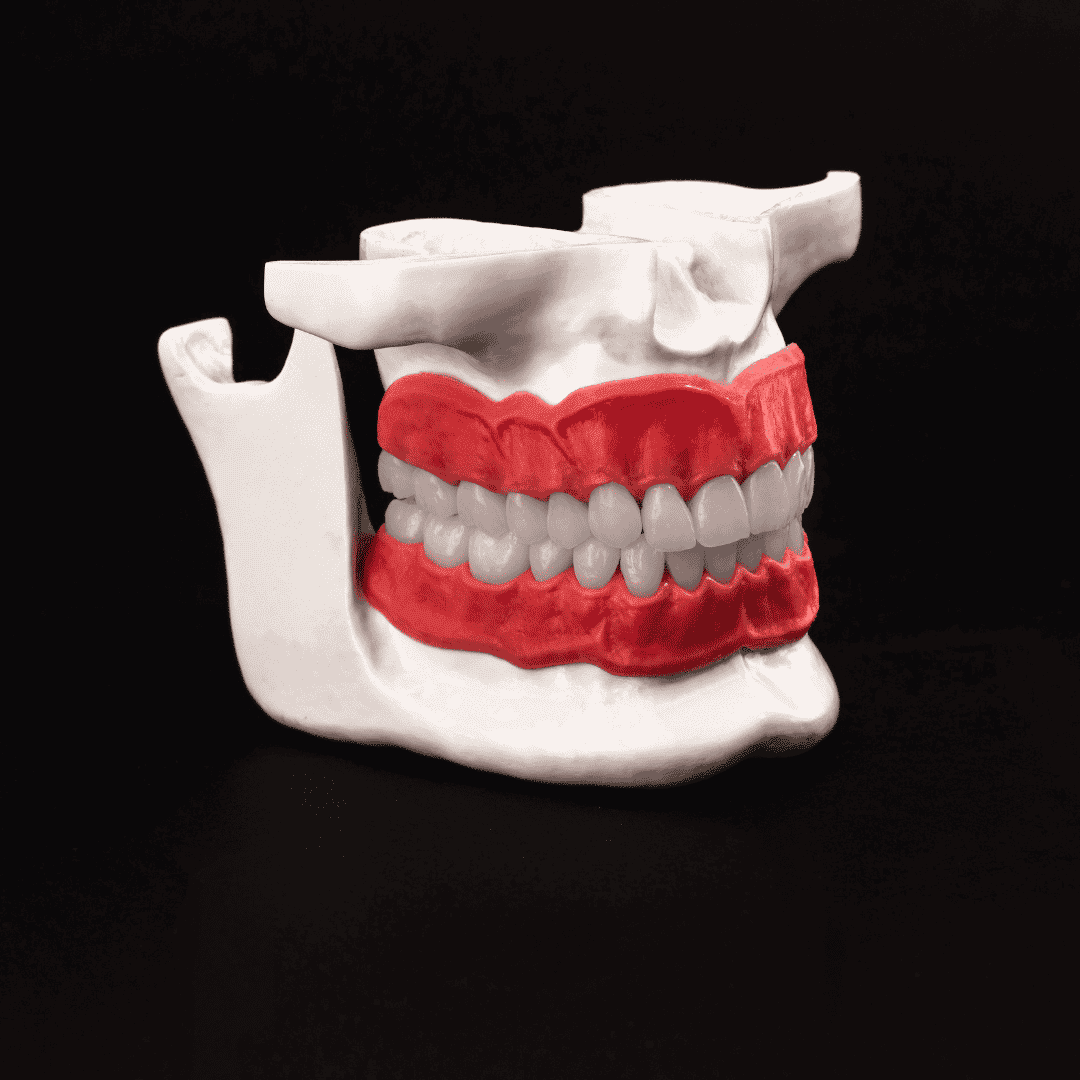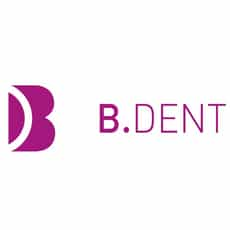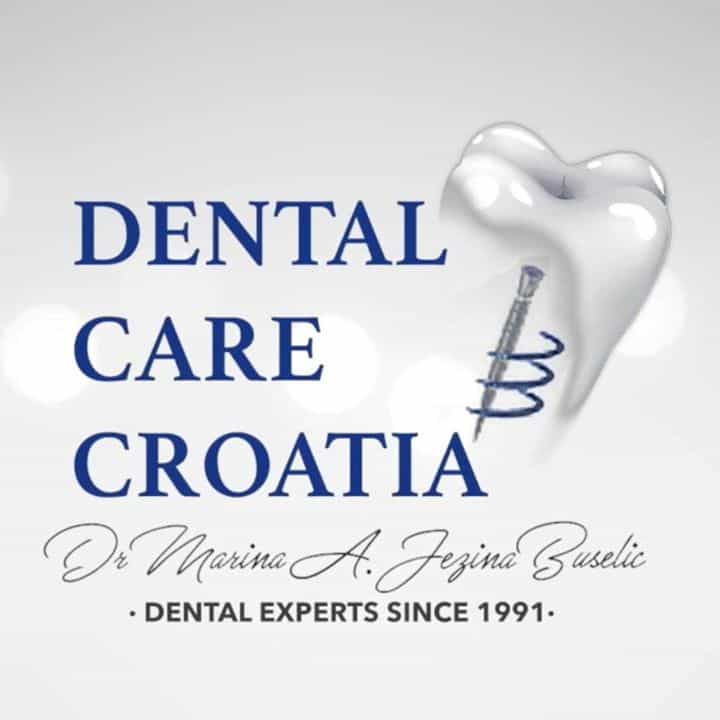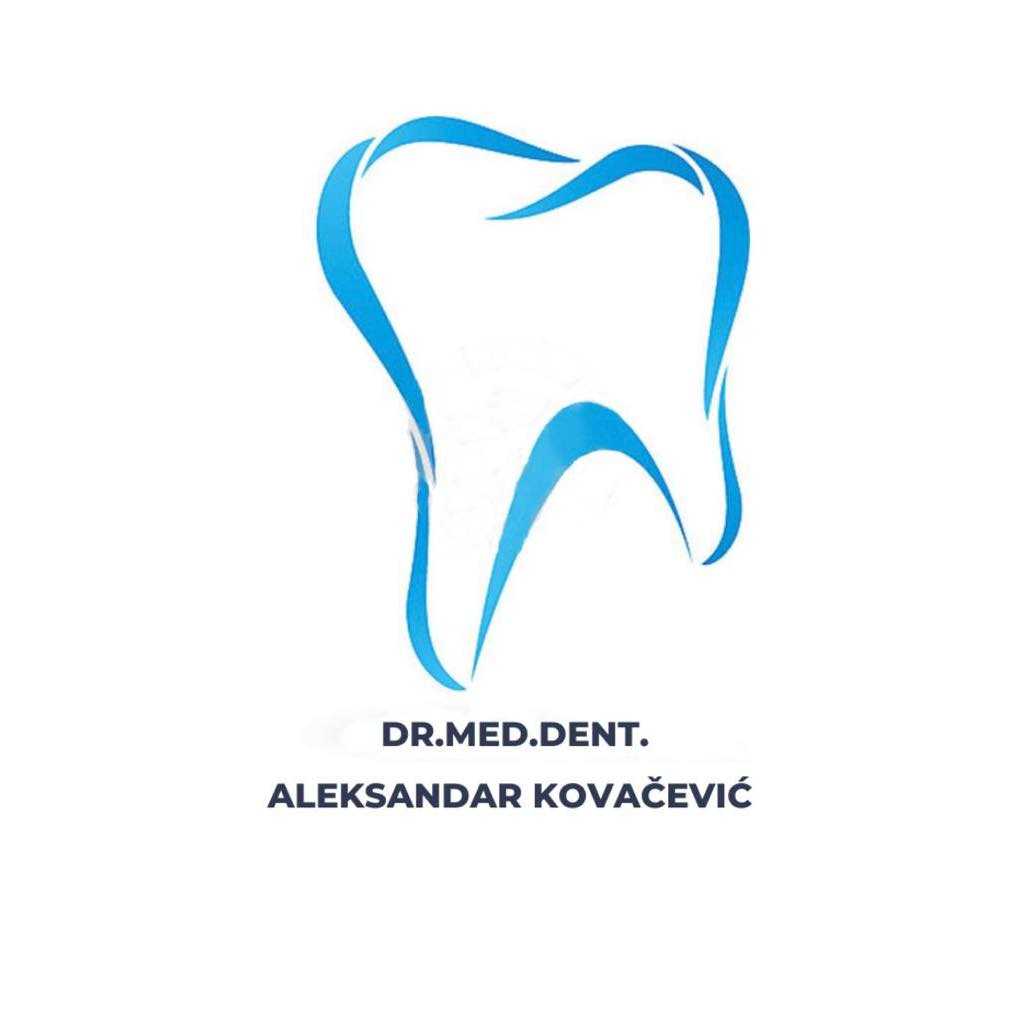A Guide to Dental Implants Cost in Croatia
"Dental implants in Croatia typically range from €500 to €1,000 for a single implant, offering significant savings compared to Western Europe and North America."

Considering dental implants can be a big step towards restoring your smile and oral health. If you're looking for a high-quality, yet affordable solution, Croatia has emerged as a popular destination for dental tourism, attracting patients from all over the world. This comprehensive guide will explore the cost of dental implants in Croatia, outlining what you can expect, what influences the prices, and why this beautiful Adriatic country is a great choice for your dental needs. We'll delve into all the important questions people ask about getting dental implants in Croatia, providing clear and detailed answers to help you make an informed decision.
What is the average cost of a single dental implant in Croatia?
"A single dental implant in Croatia generally costs between €500 and €1,000, including the abutment."
The average cost for a single dental implant in Croatia is remarkably competitive, typically falling within the range of €500 to €1,000. This price usually encompasses the implant itself, which is the titanium screw placed into the jawbone, and the abutment, which connects the implant to the crown. These costs can vary based on the specific brand of implant used, the complexity of the case, and the clinic's location and reputation.
Many clinics in Croatia offer transparent pricing, and some even include the initial consultation and diagnostics in their package deals. This affordability, combined with high standards of care, makes Croatia an attractive option for those seeking dental implants.
How do dental implant costs in Croatia compare to other European countries?
"Dental implant costs in Croatia are significantly lower than in Western European countries like the UK, Germany, and Switzerland, and often more affordable than in Eastern European neighbors like Hungary or Poland."
Croatia stands out as a highly cost-effective destination for dental implants when compared to many other European nations. For instance, in the UK, a single dental implant can cost anywhere from €2,000 to €4,000, and in the USA, prices can soar to €3,000 to €5,000 or more per implant. Even when compared to other popular dental tourism destinations in Eastern Europe like Hungary or Poland, Croatia often offers slightly more competitive pricing while maintaining excellent quality.
The lower operating costs, cost of living, and general overheads in Croatia contribute to these reduced prices, allowing clinics to offer world-class dental implant treatments at a fraction of the cost found in more expensive countries.
What is the cost of All-on-4 dental implants in Croatia?
"All-on-4 dental implants in Croatia typically cost between €4,000 and €7,000 per arch, often including a fixed hybrid acrylic bridge."
The All-on-4 treatment concept is a popular solution for individuals needing to replace an entire arch of teeth. In Croatia, the cost for All-on-4 dental implants is highly attractive, generally ranging from €4,000 to €7,000 per arch. This comprehensive price usually covers the four dental implants that support the full arch, the abutments, and a provisional or final fixed hybrid acrylic bridge.
This type of procedure offers a stable and long-lasting alternative to traditional dentures, providing a complete smile restoration with fewer implants. The significant savings on All-on-4 implants in Croatia make it a preferred choice for many patients seeking extensive dental work.
What factors influence the total cost of dental implants in Croatia?
"The total cost of dental implants in Croatia is influenced by the brand of implant, the type of material used for the crown, the number of implants needed, any additional procedures, and the clinic's location and reputation."
Several key factors contribute to the overall cost of dental implants in Croatia:
- Implant Brand and Quality: There are various reputable dental implant brands (e.g., Nobel Biocare, Straumann, Astra Tech, Neodent, Zimmer, etc.). Premium brands, known for their extensive research and long-term success rates, typically come at a higher price than lesser-known or generic brands.
- Crown Material: The material used for the dental crown that caps the implant affects the price. Options include porcelain-fused-to-metal (PFM), zirconia, or full ceramic. Zirconia and full ceramic crowns are often more expensive due to their superior aesthetics and durability.
- Number of Implants: The more implants required, the higher the total cost. This is self-explanatory, as each implant is an individual component with its own cost for the material and placement procedure.
- Additional Procedures: Some patients may require preliminary procedures before implant placement, such as:
- Bone Grafting: If there isn't enough jawbone to support the implant, a bone graft may be necessary, adding to the overall cost.
- Sinus Lift: For implants in the upper jaw, a sinus lift might be required to create enough bone height.
- Tooth Extractions: Removing damaged teeth before implant placement will also add to the expense.
- Clinic Location and Expertise: Clinics in major cities like Zagreb or Split might have slightly higher overheads, potentially leading to slightly higher prices than those in smaller towns. The experience and reputation of the dentist and clinic also play a role; highly specialized and renowned clinics might charge more for their expertise.
Understanding these factors helps patients grasp why prices can vary and what to consider when comparing quotes.
Are there any hidden costs associated with dental implants in Croatia?
"Reputable dental clinics in Croatia are transparent with their pricing, typically providing a comprehensive quote upfront that includes the implant, abutment, and crown. However, additional procedures like bone grafting or sinus lifts, if needed, will incur extra costs."
Most established and reputable dental clinics in Croatia operate with transparency, aiming to provide a clear and detailed breakdown of all costs before treatment begins. They understand that international patients need to plan their finances carefully. A good clinic will include the implant itself, the abutment, and the final dental crown in their initial quote for a single implant. For more extensive procedures like All-on-4, the quote typically covers the implants, abutments, and the prosthetic arch.
However, it's crucial to confirm if any necessary preliminary procedures, such as bone grafting or a sinus lift, are included in the quoted price, or if they are separate expenses. These procedures are sometimes required to ensure the long-term success of the implant if the patient's bone density is insufficient. Always ask for a detailed treatment plan and a comprehensive quote to avoid surprises.
What is typically included in a dental implant package in Croatia?
"A standard dental implant package in Croatia usually includes the implant fixture, the abutment, and the final crown, along with initial consultations and diagnostics (like X-rays or CT scans)."
When you consider a dental implant package in Croatia, clinics often bundle various services to provide a complete treatment solution. Typically, a basic package for a single dental implant will include:
- The dental implant (the screw that goes into the bone).
- The abutment (the connector piece).
- The dental crown (the visible tooth replacement).
- Initial consultation and examination.
- Diagnostic imaging, such as panoramic X-rays or 3D CBCT scans, to assess bone structure.
Some clinics might also include temporary crowns, post-operative check-ups, and even airport transfers or accommodation assistance as part of more comprehensive packages, especially for patients traveling from abroad. Always verify what is explicitly included in your chosen package to ensure it meets your expectations.
How long does the dental implant procedure take in Croatia?
"The entire dental implant process in Croatia, from initial placement to final crown attachment, typically spans several months, involving at least two visits, separated by a healing period of 3-6 months."
The dental implant procedure is usually a multi-stage process that requires time for proper healing and integration with the jawbone (osseointegration). Here's a general timeline:
- Initial Consultation and Planning (1-2 days): This involves examinations, diagnostics (X-rays, CT scans), and discussion of the treatment plan. If additional procedures like bone grafting are needed, they might be performed during this initial visit or scheduled separately.
- Implant Placement Surgery (1 day): The dental implant is surgically placed into the jawbone. This is usually a straightforward procedure performed under local anesthesia.
- Healing Period (3-6 months): This is the crucial time for osseointegration, where the implant fuses with the bone. During this period, you might wear a temporary crown or a partial denture. You typically return home during this phase.
- Abutment Placement and Crown Attachment (1-2 days): Once the implant has fully integrated, you return for a second visit. The abutment is attached, impressions are taken for the custom crown, and then the final dental crown is securely placed.
While the physical placement of the implant and crown is relatively quick, the biological healing process extends the overall timeline, requiring at least two separate visits to Croatia.
Is the quality of dental implants in Croatia comparable to Western standards?
"Yes, many dental clinics in Croatia adhere to high international standards, using advanced technology, modern facilities, and internationally recognized implant brands and materials, ensuring quality comparable to Western dental care."
Croatia has invested significantly in its healthcare infrastructure, and its dental tourism sector is no exception. Many dental clinics in Croatia are equipped with state-of-the-art technology, including 3D imaging, CAD/CAM systems for precise crown fabrication, and advanced sterilization protocols. Dentists and oral surgeons often receive their education and training from prestigious universities, both within Croatia and internationally, and many are members of international dental associations.
Furthermore, clinics frequently use dental implant brands and materials from leading global manufacturers (e.g., Nobel Biocare, Straumann, Zimmer, etc.), which are the same high-quality products used in Western Europe and North America. This commitment to quality, combined with strict adherence to EU health and safety regulations, ensures that patients receive dental implant treatments that are on par with, or even exceed, the standards found in their home countries.
What qualifications and experience do Croatian dentists have for implantology?
"Many Croatian dentists specializing in implantology have extensive experience, often holding postgraduate degrees and participating in continuous international training programs, ensuring a high level of expertise in dental implant procedures."
The dentists and oral surgeons performing dental implant procedures in Croatia are often highly qualified and experienced. Many have specialized training in implantology, oral surgery, or prosthodontics, which goes beyond general dentistry. It is common for them to hold master's degrees or advanced certifications in these fields.
Croatian dentists are also known for their commitment to continuous professional development, regularly attending international conferences, workshops, and training courses to stay updated on the latest techniques and technologies in dental implantology. When choosing a clinic, it's always advisable to inquire about the specific qualifications, experience, and success rates of the dentist who will be performing your implant procedure. Many clinics proudly display their dentists' credentials and patient testimonials.
What types of dental implant materials are used in Croatia?
"The most common materials for dental implants in Croatia are biocompatible titanium, for the implant screw, and zirconia or porcelain-fused-to-metal (PFM) for the prosthetic crowns."
In Croatia, just like in leading dental practices worldwide, the materials used for dental implants are chosen for their biocompatibility, strength, and durability.
- Titanium: The implant itself, which is surgically placed into the jawbone, is almost universally made from high-grade titanium. Titanium is known for its excellent biocompatibility, meaning it is well-tolerated by the human body and promotes successful osseointegration (fusion with the bone).
- Zirconia: Zirconia crowns are a popular choice for their exceptional aesthetic qualities. They are ceramic and metal-free, offering a natural, translucent appearance that closely mimics natural teeth. Zirconia is also very strong and resistant to wear.
- Porcelain-Fused-to-Metal (PFM): PFM crowns have a metal base for strength, with a layer of porcelain fused over it for a natural tooth appearance. While still a common option, they may not offer the same level of translucency as zirconia crowns.
The choice of material for the dental crown will depend on the patient's aesthetic preferences, budget, and the specific clinical situation. Clinics will discuss these options with you during the consultation.
What is the success rate of dental implants in Croatia?
"The success rate of dental implants in reputable Croatian clinics is very high, typically exceeding 95-98%, aligning with global success rates for well-performed procedures."
The success rate of dental implants in Croatia is excellent, consistently matching global benchmarks. When performed by experienced dentists using high-quality materials and adhering to proper surgical protocols, dental implants have a success rate of over 95%, and often even higher, reaching 98% or more. This high success rate is attributed to several factors:
- Experienced Professionals: Skilled and specialized oral surgeons and dentists who perform the procedures.
- Advanced Technology: Use of precise diagnostic tools (e.g., 3D imaging) and surgical techniques.
- Quality Materials: Utilization of reputable dental implant brands that have proven long-term success.
- Patient Compliance: Adherence to post-operative care instructions and maintaining good oral hygiene by the patient.
While no medical procedure has a 100% guarantee, the high success rates in Croatian clinics provide patients with strong confidence in their dental implant investment.
What are the aftercare and maintenance requirements for dental implants?
"Aftercare for dental implants involves diligent oral hygiene, regular dental check-ups, and avoiding habits like chewing hard objects, ensuring their longevity and success."
Proper aftercare and maintenance are crucial for the long-term success and durability of your dental implants. Here’s what you can expect:
- Oral Hygiene: Just like natural teeth, dental implants require meticulous daily cleaning. This includes brushing at least twice a day, flossing around the implants, and using interdental brushes or water flossers to clean hard-to-reach areas. Special implant-specific brushes may be recommended.
- Regular Dental Check-ups: It's essential to schedule regular check-ups with your dentist every six months to a year. These appointments allow the dentist to monitor the health of your implants, surrounding gums, and bone, and to perform professional cleanings.
- Avoid Hard Objects: Refrain from chewing on extremely hard foods (like ice, hard candies, or unpopped popcorn kernels) or using your implants to open packages, as this can damage the implant or crown.
- Quit Smoking: Smoking significantly increases the risk of implant failure and complications. Patients are strongly advised to quit smoking before and after implant surgery.
- Address Issues Promptly: If you experience any pain, swelling, or looseness around your implant, contact your dentist immediately. Early intervention can prevent minor issues from becoming major problems.
Following these guidelines will help ensure your dental implants last for many years, often a lifetime.
Is it safe to get dental implants in Croatia?
"Yes, getting dental implants in Croatia is generally safe, as many clinics adhere to strict EU health regulations, maintain high hygiene standards, and employ experienced, qualified professionals."
Croatia is a safe and reliable destination for dental implants. The country is a member of the European Union, which means its healthcare facilities, including dental clinics, must comply with stringent EU health and safety regulations. These regulations cover everything from sterilization protocols and equipment standards to the quality of materials used and the qualifications of medical professionals.
Many clinics catering to international patients also hold international accreditations or affiliations, further demonstrating their commitment to high standards of care. When choosing a clinic, it is always recommended to check for patient reviews, testimonials, and confirm the dentists' qualifications to ensure peace of mind. The combination of regulatory oversight, modern facilities, and skilled professionals makes Croatia a safe choice for dental implant treatment.
What is the recovery time after dental implant surgery?
"Initial recovery from dental implant surgery typically involves mild swelling and discomfort for a few days to a week, with full integration of the implant into the jawbone taking 3 to 6 months."
The recovery process after dental implant surgery is generally well-tolerated. Here’s what to expect:
- Immediate Post-Surgery (first few days): You may experience some swelling, minor bleeding, and discomfort at the surgical site. Pain medication, cold compresses, and a soft diet are usually recommended during this time. Most people can return to their normal daily activities within a day or two.
- First Few Weeks: Swelling should subside, and any bruising will fade. It's important to follow your dentist's instructions regarding oral hygiene and diet to promote proper healing.
- Osseointegration (3-6 months): This is the longest phase of recovery, where the dental implant fuses with your jawbone. This process is vital for the implant's stability and long-term success. While it's an internal process, you'll need to be mindful of your diet and avoid excessive pressure on the surgical site.
- Final Crown Placement: Once osseointegration is complete, the final dental crown is placed. At this point, the implant is fully functional, and you can resume a normal diet.
Your dentist will provide detailed post-operative instructions to guide you through each stage of recovery, ensuring optimal healing.
Can I combine my dental implant treatment with a vacation in Croatia?
"Yes, combining dental implant treatment with a vacation in Croatia is a popular option, allowing patients to enjoy the country's beauty and culture while benefiting from affordable, high-quality dental care."
Absolutely! One of the significant advantages of choosing Croatia for dental implants is the opportunity to combine your treatment with a memorable vacation. Croatia boasts stunning Adriatic coastlines, historic cities like Dubrovnik and Split, beautiful national parks, and a rich cultural heritage. Many dental clinics are strategically located in or near popular tourist destinations, making it convenient to explore the country during your healing and waiting periods.
Given that dental implant treatment often requires two separate visits, separated by a few months, patients can plan two distinct trips – one for the implant placement and another for the final crown attachment. This allows for ample time to enjoy Croatia's attractions, from relaxing on beaches to exploring ancient ruins and savoring local cuisine. Some clinics even offer assistance with accommodation and travel arrangements to make the experience seamless for international patients.
How do I choose a reputable dental clinic for implants in Croatia?
"To choose a reputable dental clinic for implants in Croatia, research their accreditations, dentist's qualifications and experience, read patient reviews, compare treatment plans and costs, and consider clinics offering transparent communication."
Choosing the right dental clinic is paramount for a successful dental implant experience. Here's a step-by-step guide to help you find a reputable clinic in Croatia:
- Check Accreditations and Certifications: Look for clinics that are accredited by international or national dental associations and comply with EU standards. This indicates a commitment to quality and safety.
- Research Dentist Qualifications and Experience: Inquire about the dentist's specific qualifications in implantology, their years of experience, and their success rates with dental implant procedures.
- Read Patient Reviews and Testimonials: Online reviews on platforms like Google, specialized dental tourism sites, and social media can offer valuable insights into other patients' experiences regarding treatment quality, communication, and overall service.
- Request Detailed Treatment Plans and Quotes: A reputable clinic will provide a clear, itemized treatment plan outlining all procedures, estimated timelines, and a comprehensive breakdown of costs. Compare these across different clinics.
- Assess Communication and Language Support: Ensure the clinic offers clear communication in your preferred language (most clinics catering to international patients have English-speaking staff). Good communication is vital for understanding your treatment and post-operative care.
- Review Clinic Facilities and Technology: Look for clinics that showcase modern facilities, advanced diagnostic equipment (like 3D CBCT scans), and use reputable dental implant brands.
- Consider Post-Operative Care and Guarantees: Understand what kind of follow-up care is provided and if there are any guarantees or warranties on the implants or crowns.
By thoroughly researching these aspects, you can select a dental clinic in Croatia that aligns with your needs and ensures a high-quality dental implant outcome.
What payment options are available for dental implants in Croatian clinics?
"Croatian dental clinics typically accept various payment methods for dental implants, including cash, major credit cards, and often offer payment plans or assistance with medical financing."
When considering the cost of dental implants in Croatia, understanding the available payment options is important for financial planning. Most dental clinics in Croatia offer flexibility in payment methods to accommodate international patients:
- Cash: Many clinics offer a small discount for cash payments, especially for larger procedures like dental implants. It's wise to confirm the accepted currency (Euro is standard in Croatia).
- Credit/Debit Cards: Major credit cards such as Visa, MasterCard, and American Express are widely accepted. Check if there are any processing fees for international cards.
- Bank Transfers: You can usually make a direct bank transfer, though this may require more lead time and incur international transfer fees.
- Payment Plans/Financing: Some clinics, particularly those specializing in dental tourism, may have partnerships with medical financing companies or offer their own internal payment plans, especially for extensive treatments like All-on-4. This can help spread the cost over time.
- Insurance: While direct billing to international insurance providers is less common, clinics can usually provide detailed invoices and documentation that you can submit to your insurance company for reimbursement, depending on your policy's coverage for overseas dental work.
Always confirm the accepted payment methods and any potential discounts or financing options with your chosen clinic beforehand.
How long do dental implants last?
"With proper care and maintenance, dental implants can last a lifetime, while the prosthetic crowns typically need replacement every 10-15 years."
One of the most significant advantages of dental implants is their remarkable longevity. The implant itself, which is the titanium screw fused into your jawbone, is designed to be a permanent solution. With diligent oral hygiene and regular dental check-ups, the implant post can realistically last a lifetime.
However, the dental crown (the visible tooth part) that is attached to the implant may need replacement over time. Depending on the material (e.g., porcelain, zirconia), chewing forces, and oral hygiene, dental crowns typically last between 10 to 15 years, and sometimes even longer. Factors like teeth grinding (bruxism) or poor oral hygiene can shorten the lifespan of the crown and, in rare cases, even compromise the implant. Your dentist will advise on the best materials for your situation and provide guidance on maintenance to ensure the longest possible lifespan for your dental implants.
Explore PlacidWay for solutions related to medical tourism, healthcare services, or other relevant offerings.




.png)







.png)






Share this listing